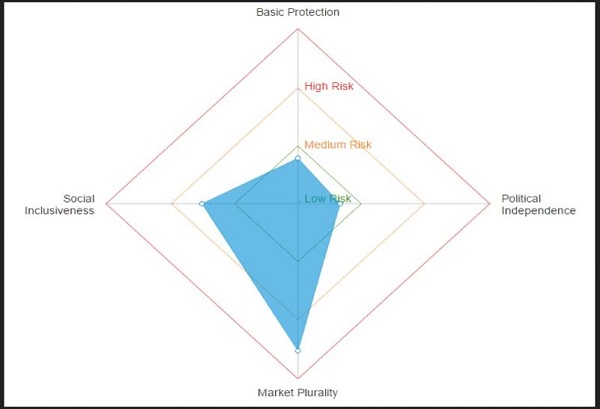
A recent study from the University of Luxembourg into the national media landscape has revealed that the country faces a high risk in the area of the plurality of the media market.
The study a pan-European project funded by the European Commission and conducted by the Centre for Freedom and Pluralism of the Media at the European University Institute, analysed risks for media pluraliam across 19 European countries, based on over 200 indicators. The report, which was published in October 2015 by co-authors Raphaël Kies, Céline Schall and Kim Nommesch, found that whilst the country faces low risks in terms of the political independence on the media and freedom of expression, a question mark hovers over the plurality of the national media market, which remains a highly important factor in democratic societies.
"The media market is emerging as one of the most concentrated in Europe," commented Dr. Raphaël Kies, Research Associate at the University of Luxembourg and the report's main author. He explained that although the tiny size of the country makes its number of print media comparatively high, the market is dominated by the two major groups Editpress and Group Saint-Paul, whilst RTL Group monopolises a highly concentrated audiovisual market as the dominant provider.
As Dr. Kies further outlined, plurality is in part hindered in the country due to the lack of legal provisions preventing media concentration, pointing out that "Luxembourgish law contains no limit or specific criteria with which to control cross-media concentration."
"These mixed performances are mainly attributable to the small size of Luxembourg, its particular demographic structure (with a high percentage of non-Luxembourgish residents, who cannot be considered as “national minorities”), its prominent role in the international “market of concessions” and the lack of critical and independent reports on the national media legislation, market and practices," the report stated. "All in all, these special conditions explain that Luxembourg is a peculiar case where pragmatism defines the media and electronic communications policies. Pragmatism “justifies” the lack of human resources and the effectiveness of national authorities, the absence of an adequate national media offer (for the multilingual resident population), and the presence of a highly concentrated media market."
Furthermore, the report found that the funding for the newly created independent media authority ALIA ('Autorité luxembourgeoise indépendante de l'audiovisuel') is at odds with its multiple responsibilities, which includes monitoring around 50 audiovisual concessions across more than one country. The auhtors concluded that the role of public services in Luxembourgish media needed to be strengthened.
Photo by University of Luxembourg








